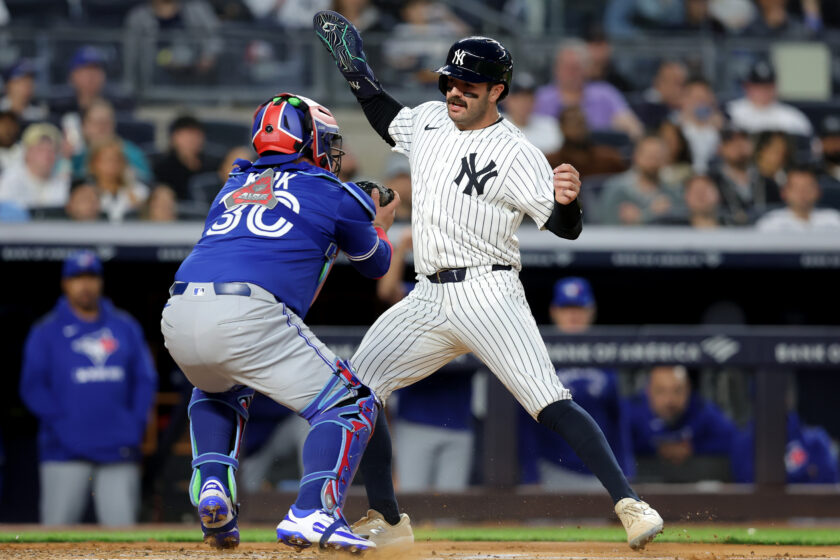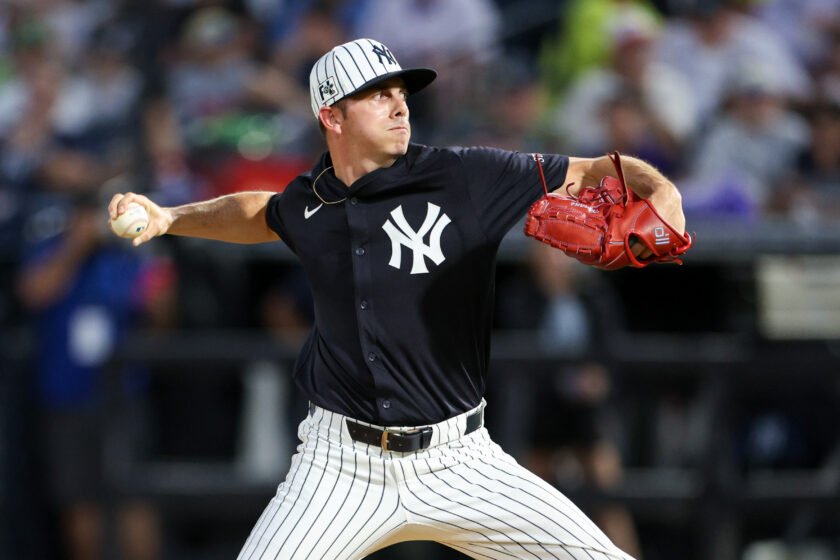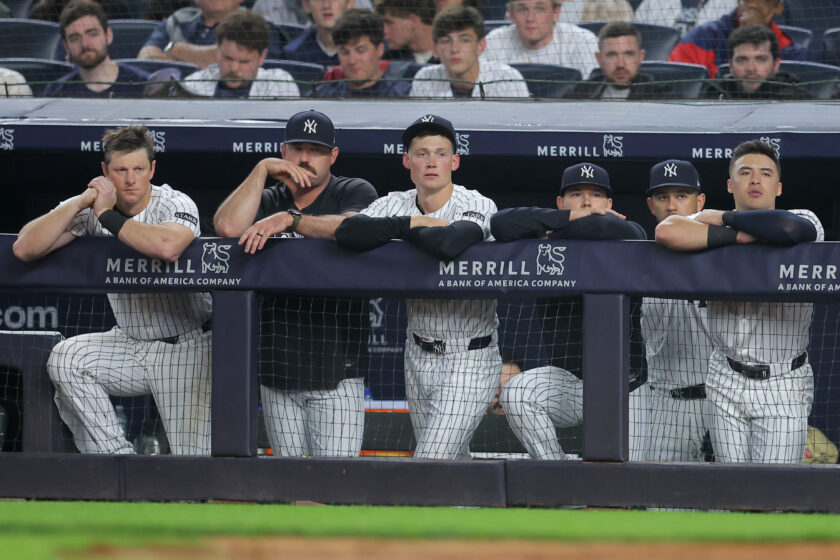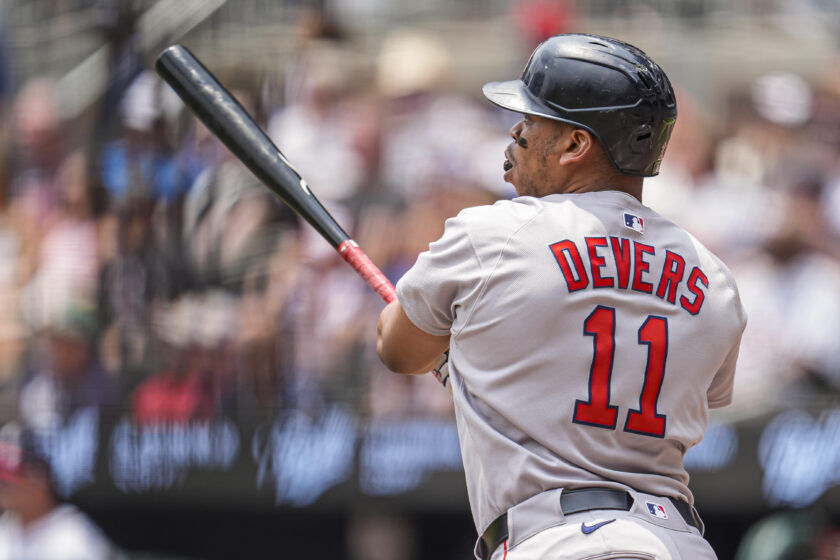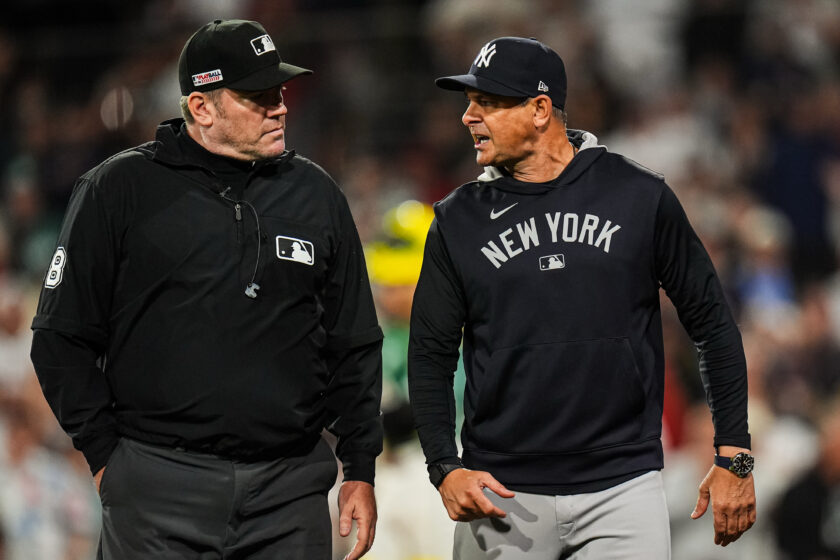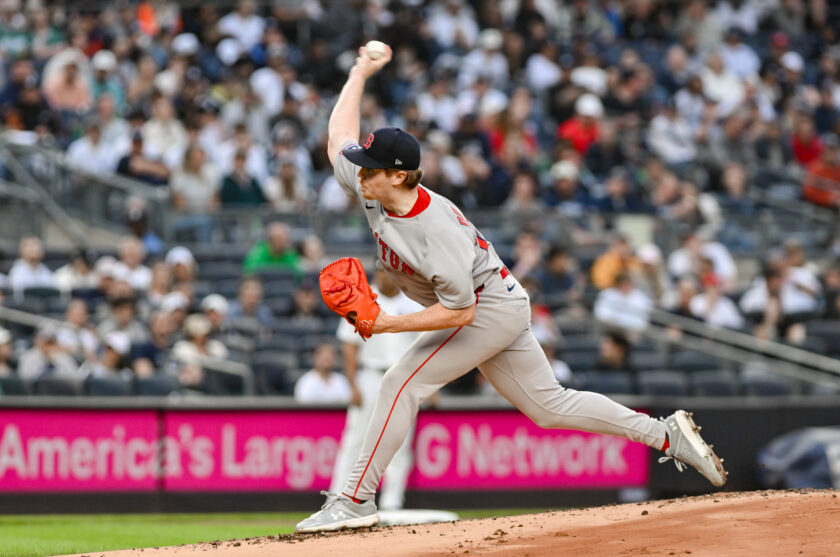New York Yankees: Bucky Dent and Mike Torrez revisit iconic homer (Interview)
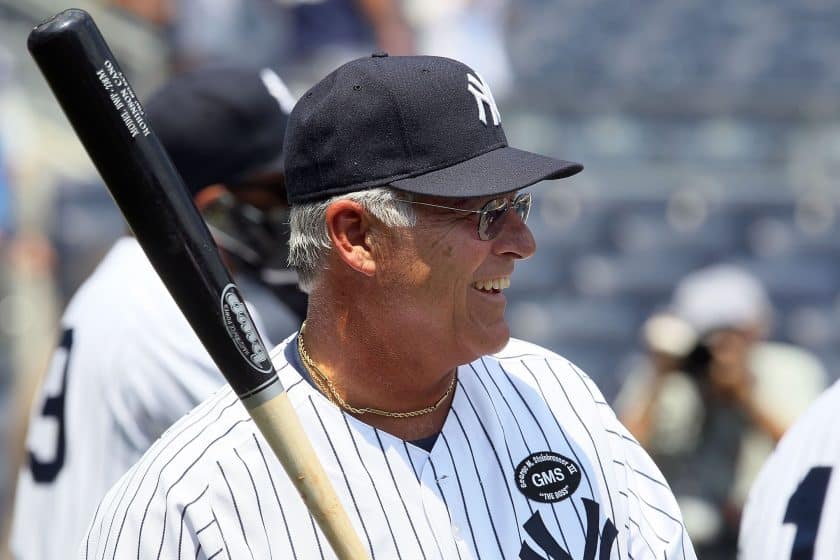
Bucky Dent and Mike Torrez revisit Dent’s legendary home run that helped the New York Yankees top the Boston Red Sox in 1978.
[sc name=”Josh Benjamin Banner” ]Oct 2.
At first glance, it’s just another date throughout history. Mahatma Gandhi, Groucho Marx, and former Dodgers shortstop Maury Wills were all born on this day. Contrastingly, Tom Petty, former California Angels owner Gene Autry, and actor Rock Hudson all passed away on October 2. This date also marked the premiere of The Twilight Zone in 1959, as well as a special occasion in baseball history.
That’s because 40 years ago, on a Monday afternoon in Boston, the New York Yankees and Boston Red Sox met in a critical one-game playoff to determine the winner of the AL East. Game 163.
In a hard-fought contest that came down to the wire, the Yankees won 5-4 thanks to a go-ahead, three-run home run by Bucky Dent in the seventh inning. New York went on to win the division and, subsequently, the World Series despite being 14 games behind the Red Sox at one point.
This story is encapsulated in Emmy Award-winner Jonathan Hock’s new documentary 14 Back, produced by SI TV.
[sc name=”Yankees Center” ]“This being the 40th anniversary of this iconic baseball moment, we couldn’t think of a better topic to do a deep dive along the lines of the legacy of SI and bring that to a video medium with SI TV,” said SI TV’s Vice President of programming, Josh Oshinsky.
I was fortunate enough to be invited to the premiere of 14 Back, as were Dent and Mike Torrez, the Red Sox pitcher who served up the home run. Even better, they were more than happy to share some of their memories of the game while also talking about the current state of the Yankees-Red Sox rivalry.
[sc name=”Yankees Title” text=”Catching up” ]Josh Benjamin: Bucky, it’s been 40 years since your legendary home run! How does it feel?
Bucky Dent: Well, it feels great! It’s something that people don’t forget. They know where they were at. They know what they were doing. Red Sox fans hate me. Yankees fans love me. It was history! I don’t think you’ll ever see a game like that again because of the expansion with the Wild Card. Back then, we had to win the division. It was just history.
JB: Mike, you’ve been on both sides of this rivalry, having played for both the Red Sox and Yankees. What can you tell us about that experience?
Mike Torrez: Well, back then, it was pretty intense. Both teams hated each other, and it seemed like it’s starting to come back a little bit. It kind of got mellowed out in recent years. Now that I see the intensity that’s going on, it’s starting to build up again. But back then, in the ‘70s, everybody hated each other. We hated the Red Sox when I was with the Yankees. When I was with the Red Sox, we hated the Yankees, so it worked out pretty good!
JB: Let’s keep on this topic because as a Yankee, you got the final out in a complete game victory in Game 6 of the 1977 World Series. One year later, you give up a tide-turning home run to your old teammate, Bucky Dent. Did you know right from the get-go, from the moment you served up the pitch, that he got all of it?
MT: It was a corked bat home run! Bucky borrowed Mickey Rivers’ corked bat. When he hit it, it didn’t sound like he had hit it at all! Of course, then I saw Yaz. The wind started blowing out to left that inning. I should have realized, having played there all year, that the wind would turn around at that time. I was going to come in on him. I didn’t quite get it in and up, and then I was going to go with a slider away. But the way it happened, it looked like it hit the top of the fence and went out.
JB: Bucky, take us through that at-bat because you weren’t much of a home run hitter in your career! You pretty much shifted momentum in your team’s favor from that moment, standing in the batter’s box against your former teammate. What was that like?

BD: In the moment, it was something. I fouled a ball off in the at-bat, and cracked a bat in batting practice earlier. Rivers said to me “Homie, you’ve got the wrong bat.” I was worried more about my leg, which I’d injured earlier in the year. I turned around to go back to the plate, the bat boy came up and said: “Mickey said take this bat, the other one’s cracked.” So, I just took it, got in the box, and the first pitch I saw after that, I hit for the home run!
JB: We’re living in an era of baseball where it seems everyone under the sun has to hit 20 or more home runs to make it. You were more of that scrappy player who grinds out at-bats. Can that type of player still make an impact in the game today?
BD: Well, you know, I’ll tell you one thing. The position of shortstop has changed. That’s the one position I can honestly say has really changed in baseball. It used to be more defensive. Do your job, move guys over, bunt, play the game the right way. As far as that, today it’s become more of a power position. The guys are getting bigger. They’re stronger. They’re athletic, so it would probably be a big difference as opposed to me trying to make it today.
JB: The film details a moment right before the home run where manager Bob Lemon considered pinch-hitting for you. Similarly, Mike threw a lot of pitches. Baseball today is very scientific whereas back in 1978, games were managed on gut instinct. What are your thoughts on the age of analytics?
BD: Well, you know, I’m not much of an analytical guy. I think it’s gone the other way, where it’s too much. Back then, with managers, Earl Weaver I think was one of the first guys who wrote numbers down on a card and kind of fiddled with matchups and stuff like that, but everybody had numbers on who did what against what pitcher. I think the manager had the feel of the game, you know, of the pitcher. Like, Mike and I talked a lot about when he pitched, he threw 100-something pitches warming up and then he threw 100-something pitches in the game! The manager just had the feel of the game and he kind of went by that. If you were swinging the bat good, he’d leave you alone. If you were throwing the ball well, they let you go as long as you could, so I think that’s the biggest difference back then.
It’s what you call the instincts of the game. The feel of the game. Coming up as a young shortstop, I had a great infield coach and my first year, he used to move me around with a towel. I’d go over the charts and look at them, visualize who the hitter was and who the pitcher was, and what kind of stuff he had that day. After a while, he told me “Look, I might not be here. You need to learn to do this yourself. You need to learn the position.” If someone today asked me “Where did you or would you play such-and-such hitter,” I could tell you. You have that instinct and that feel in your mind of playing in the game. Today, players have cards saying how they should play the outfield during the game. It’s just different.
JB: Guys, the Yankees and Red Sox have an important series this week. If you could say one thing to them, what would it be?
BD: Well, the one big difference from when we played and the way they play now is the Wild Card. They’re several games out, but they’re going to make the playoffs. Once you’re in the playoffs, you’re dangerous. They were playing really good ball at the beginning of the year, but had some injuries that slowed them down. Once you get in the playoffs, everything’s out the window. I don’t care how many games you won or whatever. You start at zero. For the Yankees, get healthy. Get Judge and Chapman back. Focus really on getting to the playoffs and doing their damage there. For the Red Sox, they got more pressure on them. They’ve led the division for pretty much the whole year. They’re going down the stretch, and the pressure is on them!
MT: Well, it’s going to be a lot of fun. The Red Sox look like they’ve already clinched, so a lot of pressure is on the Yankees to beat Oakland if those teams meet in the one-game playoff. If they can get past that, it should be a great series if Judge and Chapman can get back to help the team. There are still a lot of little questions to be answered but if they both face each other, it should be a great series!
[sc name=”Yankees Link Next” link=”https://elitesportsny.com/2018/09/20/new-york-yankees-video-giancarlo-stanton-breaks-out-in-grand-fashion/” text=”WATCH: Giancarlo Stanton Slams Home Run To Give Yanks The Lead” ] [sc name=”Yankees Footer”]Josh Benjamin has been a staff writer at ESNY since 2018. He has had opinions about everything, especially the Yankees and Knicks. He co-hosts the “Bleacher Creatures” podcast and is always looking for new pieces of sports history to uncover, usually with a Yankee Tavern chicken parm sub in hand.

